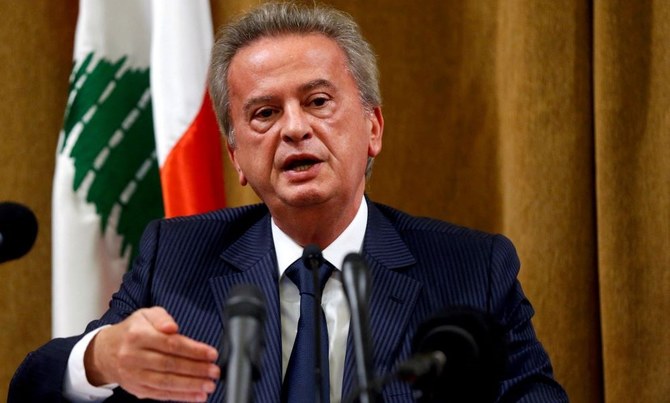Lebanon’s problems are not always due to sectarianism

https://arab.news/gt6jy
I am surprised when listening to opposition leaders in Lebanon claiming that Hezbollah is blocking the election of the president. Indeed, one may ask who is the opposition and who is the ruling party? Hezbollah is in the government and, more importantly, in the parliament in charge of electing the next president. And so, if they are all together in the same government, who is really in charge? The answer lies in the famous “no victor and no vanquished” formula. In my opinion, it is the worst political formula there is. It may in theory sound good, but in practice it makes political leaders the winners and the population the losers.
In fact, this formula is quite convenient for all political leaders. It is convenient because they can easily avoid accountability with their constituents and shift the blame. It gives Hezbollah what it wants. The armed militia can claim that it is not involved in politics but just has the notorious blocking third. And all the other political groupings can easily blame Hezbollah for not being able to achieve any reforms. And so, everyone can play make-believe politics, which, they always remind us, is better than a total vacuum, chaos or the burning down of the country.
This formula is causing the dead end in the presidential election. It is nevertheless not the only file preoccupying the Lebanese and facing a dead end. The other one is their lost deposits and the legal case against Central Bank Governor Riad Salameh. The first dead end is absolutely caused by the sectarian political system, but the second is not. The fact is that, despite what everyone claims, everything in Lebanon is not always due to sectarianism.
Starting with the election of a new president, everyone is focusing on what is happening outside Lebanon to determine the outcome inside the country. Yet, the reality is that all the political blocs have agreed to this status. They have agreed to have a system that cannot bring change; a system where each solution to a problem automatically causes the next problem. It never ends and nothing changes. It is like they feed off each other.
In order to get the votes to be able to form a government, a blocking third veto for Hezbollah was a necessity. And so, this was automatically going to stop any future positive change in the country. The same applies to the election of a president — a two-thirds majority is needed in the parliament. If this fails, then an absolute majority should be enough. The only problem is that the interpretation of the quorum needed changes according to the political affiliation. And so, once again, history will remember a deadlock, leaving Hezbollah as the final decision-maker.
This is why the advisers to French President Emmanuel Macron have chosen a cold and ruthless transactional pragmatism in their support of Suleiman Frangieh for the presidency. Macron engaged himself personally in this issue and this is the best way to bring about a diplomatic victory for France by filling the current vacuum. It is interesting to notice that, with the political downfall of Michel Aoun’s clan, the Christian political formations are now opposed to France, which has been their traditional foreign ally. This is a great symbol of the transactional politics of Lebanon. And so, the wait will continue until a deal is made that will almost certainly bring about the next problem for the country. We can also quickly notice how the sectarian political system is at the root of this situation.
The second “current thing” is the future of Salameh. And, here too, France plays a role, as it is leading the investigation into the corruption case. French prosecutors this week issued an arrest warrant for Salameh, who will appeal. The warrant followed his failure to attend a court hearing in Paris after the Lebanese authorities failed to hand him the official summons. Unable to question him about the alleged corruption charges, the prosecutors chose a non-transactional and direct approach.
Salameh is one man within an entire system. He may be an important one, but he is not its architect.
Khaled Abou Zahr
This will probably have no impact on the outcome of lost deposits. Yet, it puts pressure on the political class. The reality is that Salameh is one man within an entire system. He may be an important one, but he is not its architect. And the amounts stated in this corruption case are most probably his share of the Ponzi scheme. The important questions are who are the corruptors and where are they? These questions will not be answered. But if they were, it would prove that this is absolutely not a sectarian issue, but rather one of greed and abuse of the state.
It is very clear that the only losers in this state of affairs are the citizens, regardless of their confession. They are the ones who have lost their savings and have seen the value of their currency plummet. They are living through insecurity and hunger. They are living through abuse. They are being robbed of their dignity and their right to fight for a better future.
The “no victor and no vanquished” formula is just an illusion. The reality is that, by blurring the lines between ruling party and opposition, they have all become accomplices in a broken system. Whether willingly or not, they allow for the worst to happen: international interference, occupation, lack of accountability. And worst of all, they have allowed an armed militia to take over the country and its decision-making processes. They have fast-tracked this group’s international recognition and even promoted it.
- Khaled Abou Zahr is the founder of Barbicane, a space-focused investment syndication platform. He is the CEO of EurabiaMedia and editor of Al-Watan Al-Arabi.










































